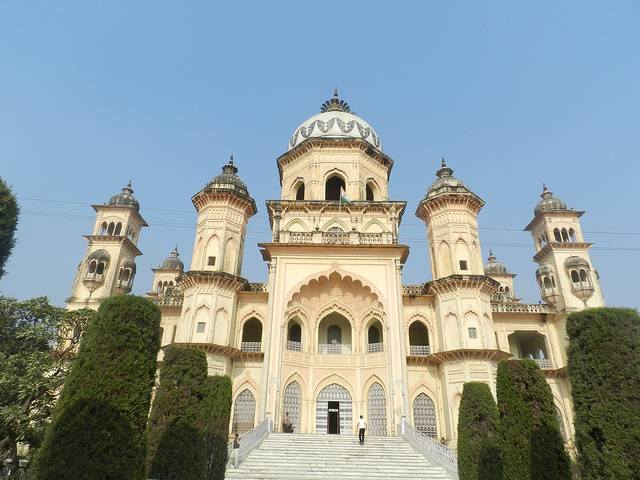Satara, Maharashtra City Guide: Where To Go, Stay, Eat, And shop in India’s best city.
Satara is a historic city located in the western Indian state of Maharashtra. It serves as the administrative headquarters of the Satara district and is situated at the foothills of the Sahyadri mountain range, near the confluence of the Krishna and Venna rivers. Satara is known for its rich history, cultural heritage, and natural beauty. The city has played a significant role in Maharashtra’s history, particularly during the Maratha Empire.
Key Features of Satara:
- Historical Significance:
- Satara was the capital of the Maratha Empire under Chhatrapati Shahu Maharaj, the grandson of Chhatrapati Shivaji Maharaj, in the early 18th century.
- The city was a center of power and administration during the Maratha rule and played a crucial role in the expansion of the empire.
- After the fall of the Maratha Empire, Satara became a princely state under British rule until India’s independence in 1947.
- Architectural and Historical Landmarks:
- Satara Fort (Ajinkyatara Fort): A historic fort located on a hill, offering panoramic views of the city. It is believed to have been built by the Maratha king Bhoj II and later fortified by Chhatrapati Shivaji Maharaj.
- Sajjangad Fort: Located about 15 kilometers from Satara, this fort is the final resting place of the great Marathi saint Samarth Ramdas, the spiritual guru of Chhatrapati Shivaji Maharaj.
- Pratapgad Fort: Situated about 50 kilometers from Satara, this fort is famous for the Battle of Pratapgad, where Chhatrapati Shivaji Maharaj defeated Afzal Khan.
- New Palace: A royal residence built by the Maratha kings, now a museum showcasing artifacts, weapons, and paintings from the Maratha era.
- Natural Beauty:
- Kaas Plateau: Known as the “Valley of Flowers of Maharashtra,” this UNESCO World Heritage Site is famous for its unique biodiversity and seasonal flowers. It is located about 25 kilometers from Satara.
- Thoseghar Waterfalls: A scenic waterfall located about 20 kilometers from Satara, surrounded by lush greenery and hills.
- Chalkewadi Windmill Farms: One of the largest windmill farms in Asia, located near Satara, offering stunning views and a unique experience.
- Religious Sites:
- Jyotiba Temple: A popular temple dedicated to Lord Jyotiba, located about 40 kilometers from Satara.
- Kashi Vishweshwar Temple: An ancient temple dedicated to Lord Shiva, located in the heart of Satara.
- Yavateshwar Temple: A historic temple dedicated to Lord Shiva, known for its architectural beauty.
- Economy:
- Satara’s economy is primarily based on agriculture, with crops like sugarcane, grapes, and tomatoes being major contributors.
- The city is also known for its dairy industry, particularly the production of milk and milk products.
- Tourism is a growing industry, thanks to the city’s historical sites and natural attractions.
- Education and Healthcare:
- Satara has several educational institutions, including Yashwantrao Chavan Institute of Science and Satara College.
- The city has a network of hospitals and healthcare facilities catering to the local population.
- Transportation:
- Satara is well-connected by road and rail. The Satara Railway Station is a major stop on the railway network.
- The city is accessible via National Highway 48 (NH 48) and other state highways.
- The nearest airport is Pune Airport, located about 110 kilometers away.
- Cultural Heritage:
- Satara is known for its vibrant culture, including traditional Marathi folk music, dance, and festivals.
- The city celebrates festivals such as Ganesh Chaturthi, Diwali, and Holi with great enthusiasm.
- The local cuisine includes traditional Maharashtrian dishes like puran poli, vada pav, and poha.
Challenges:
- Satara faces challenges such as urbanization, environmental degradation, and the need for better infrastructure.
- Efforts are being made to preserve its historical sites and promote sustainable tourism.
Satara is a city that offers a perfect blend of history, culture, and natural beauty. Whether you’re exploring its historical forts, enjoying its scenic landscapes, or experiencing its vibrant culture, Satara provides a unique and enriching experience for visitors.

![Satara, Maharashtra City Guide: Where To Go, Stay, Eat, And shop in India’s best city. [Updated-2025]](https://traveloinfo.com/wp-content/uploads/2025/02/Satara-Maharashtra.jpg)



![Bangalore, Karnataka City Guide: Where To Go, Stay, Eat, And shop in India’s best city. [Updated-2025]](https://traveloinfo.com/wp-content/uploads/2025/02/bangaloref.jpg)
![Hyderabad, Telangana City Guide: Where To Go, Stay, Eat, And shop in India’s best city. [Updated-2025]](https://traveloinfo.com/wp-content/uploads/2025/02/hydrabad1.jpg)
![Ahmedabad, Gujarat City Guide: Where To Go, Stay, Eat, And shop in India’s best city. [Updated-2025]](https://traveloinfo.com/wp-content/uploads/2025/02/ahemadabad1.jpg)